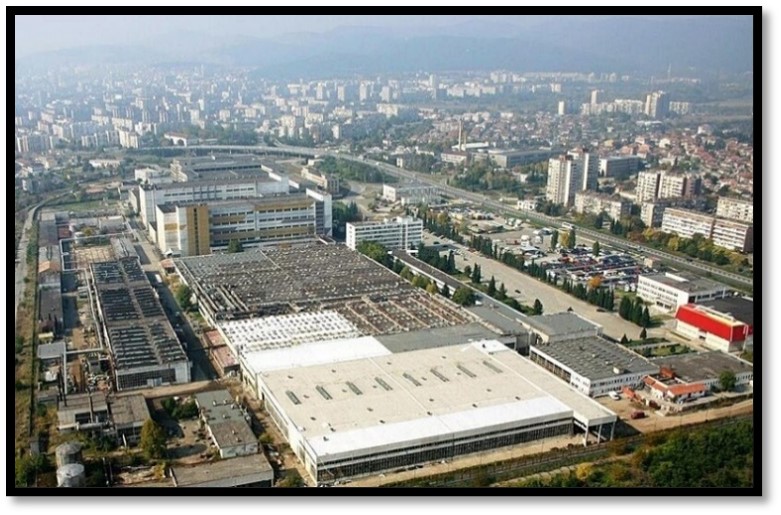In 2024, the European Commission launched the second edition of JTP Groundwork, a technical assistance tool under the Just Transition Platform (JTP). JTP Groundwork supports Just Transition Fund (JTF) regions to implement their Territorial Just Transition Plans. The second edition delivers 12 projects across 16 JTF territories, including the Stara Zagora Region in Bulgaria.
JTP Groundwork: Workshop in Stara Zagora, Bulgaria, discusses creation of a regional business incubator
- 04 December 2024

Supporting economic diversification in the Stara Zagora region
Bulgaria is receiving €1.2 billion from the JTF to invest in new jobs and economic activities for a just transition in Stara Zagora as well as the regions of Kyustendil and Pernik. These regions face the biggest socio-economic challenges in phasing out coal and reducing CO2 emissions as part of the transition to climate neutrality.
Stara Zagora is known as the energy heart of Bulgaria, hosting several large coal mines and energy generation activities. Notably, the region is home to four thermal power plants, the Maritsa Iztok energy complex, which employs more than 13,000 people.
The transition to a zero-carbon economy is expected to affect up to 80% of the region’s jobs in coal mining and energy production, requiring the immediate creation of new job opportunities. The municipality of Stara Zagora would like to diversity its economy by supporting entrepreneurship and business development that can create alternative job opportunities.
The municipality is also receiving technical assistance from JTP Groundwork to design a business incubator. This will complement other initiatives being developed in the region to foster entrepreneurship and innovation, which are important steps for economic diversification.
Validating the design of a business incubator with local stakeholders
On 19 November 2024, JTP Groundwork organised a workshop in Stara Zagora, together with Rositsa Raykova, Head of the Investment, Energy Efficiency, and Green Transition Department of the municipality of Stara Zagora. The workshop provided an opportunity to present the region’s business incubator development plan and its alignment with its broader strategy to enhance entrepreneurship and innovation.
The event focused on sharing results and lessons learned, discussing potential roles and interests of stakeholders, and promoting collaboration and ownership. It was attended by some 30 participants from the region, representing knowledge partners (e.g. university of Trakia), finance partners (e.g. private venture capital), and institutional partners (e.g. a regional development agency and information technology association).
The event began with an introduction by the beneficiary to the context of the region, its challenges, initiatives and future strategies. After some words by the European Commission about the JTF and JTP Groundwork’s support, PwC presented its work on developing a broader local strategy and roadmap for entrepreneurship, innovation and digitalisation. The development of business incubators is one of the approaches identified to implement the strategy.
JTP Groundwork shares key lessons and a plan for the future
JTP Groundwork’s technical assistance team then presented a development plan for the operationalisation of the business incubator. The plan was derived from insights from case studies, stakeholder interviews, and extensive desk research.
The team also shared some key lessons from JTP Groundwork’s technical assistance to the region, including the following:
- Strategy alignment: The incubator’s strategic focus should consider the region’s strengths and its development strategy. The green transition angle covers both.
- Programme focus: A strategic focus is required, tailored to the needs of the region. Broad mentorship programmes to build entrepreneurial knowledge and specialised bootcamps to engage startups should be delivered.
- Team: A motivated entrepreneurial team is needed.
- Operations: A ‘light’ set-up with limited infrastructure is needed to begin with.
- Partnerships: The region must engage with the regional and national ecosystem via all relevant partners, create community engagement, and optimise resource utilisation.
- Marketing: It is important to communicate, advertise and engage. The initiative needs to be visible for beneficiaries, potential partners and authorities. Visibility will generate engagement and accountability.
- Increase the playing field: There is room for more entrepreneurship development in the region, provided all activities share the same vision. Further coordination would be beneficial.
The final section of the workshop involved interactive discussions, as stakeholders were divided in groups to reflect on how the development entrepreneurship and a business incubator of the region can help respond to its needs for the transition.
This workshop was the final event before the Stara Zagora region concludes its technical assistance from JTP Groundwork and delivers a final action plan to take forward.
